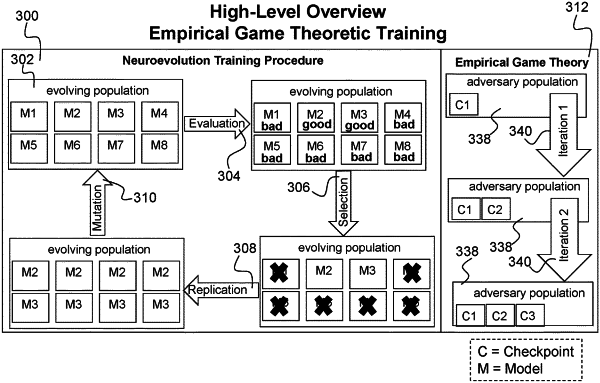| CPC G06N 3/086 (2013.01) [G05B 13/027 (2013.01); G05B 13/04 (2013.01)] | 22 Claims |

|
1. A system for performing a simulated vehicle control task based on adversarial decision analysis, the system comprising:
one or more processors and a non-transitory computer-readable medium having executable instructions encoded thereon such that when executed, the one or more processors perform operations of:
performing a plurality of empirical game theoretic analyses between an evolving population of neural network strategies and an adversary population of neural network strategies, wherein each empirical game theoretic analysis comprises:
using a neuroevolution procedure, performing a fitness-based selection of a strategy in the evolving population of neural network strategies that out-performs the adversary population of neural network strategies; and
using an empirical game theory procedure, iteratively running the neuroevolution procedure and adding the selected strategy to the adversary population of neural network strategies with each iteration,
wherein addition of the selected strategy to the adversary population of neural network strategies results in monotonic strategy improvement with each iteration;
following the plurality of empirical game theoretic analyses, selecting a final strategy for the evolving population of neural network strategies and the adversary population of neural network strategies using a tournament selection procedure;
using the final strategy, training a neural network; and
using the trained neural network to perform a simulated vehicle control task.
|